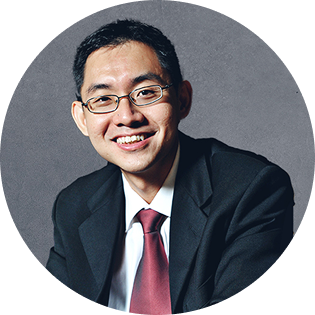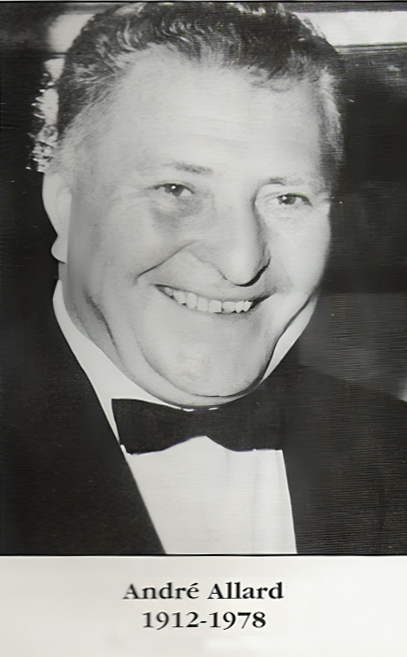Defining the future of global systems governing health and wellbeing of populations: Amidst the revolution in aviation and space travel
The global system of governance established post World War II, alongside the Bretton Woods Institutions, are currently under threat. The impending breakdown of these systems - originally established to maintain peace, security and economic growth - indicates that the world is at risk once again; not just to conflicts and wars, but also pandemics, climate destabilisation, and the dangerous rise of uncontrolled nationalism and short-termism.
What is often overlooked is that the global movement of people and goods requires global standards that are respected and maintained by international bodies including the International Civil Aviation Organisation and the International Air Transport Association, established in 1944 and 1945 respectively. Aviation global standards were under threat during the Covid-19 pandemic when governments worldwide unilaterally decided to close borders and restrict the movement of essential supplies and people.
Amidst the revolution in aviation and space travel - with urban air mobility, hydrogen-powered aircrafts and commercial space travel becoming a reality in the near future, agreement on international standards and regulations governing both aviation and space safety is ever more important. In this lecture, I will explore the future of global health governance and diplomacy, amidst the current megatrends shaping the world. The world will need to reach a consensus on the international regulations necessary for the future of aviation.
Professor Teo Yik Ying is Dean of the Saw Swee Hock School of Public Health at the National University of Singapore, and concurrently a Governing Board Member for the Southeast Asian Ministers of Education (SEAMEO) Regional Centre for Tropical Medicine and Public Health Network. Prior to his Deanship, he was the Director for the Centre for Infectious Disease Epidemiology and Research, and Founding Director for the Centre for Health Services and Policy Research for the School of Public Health.
Professor Teo is presently a member of the International Organising Committee for the Prince Mahidol Award Conference, as well as the M8 Alliance which forms the academic foundation for the World Health Summit. He is the Co-Director for the Asia Pacific Academic Consortium for Public Health’s Collaborating Centres for Health Promotion, and sits on the Global Coalition of Deans of Schools of Public Health.
Professor Teo previously worked on the use of genetic technologies for the control and elimination of several infectious diseases, including malaria and tuberculosis. As a previous member of the global MalariaGEN network, he was actively involved in training and capacity development of research fellows from different African and Southeast Asian countries.
He received his BSc in Mathematics from Imperial College in 2000, MSc in Applied Statistics and DPhil in Statistics from the University of Oxford in 2001 and 2006 respectively.
In 2023, Prof Teo was appointed Vice President of NUS’ new Office of Global Health, which is a multidisciplinary whole-of-University effort to drive NUS’ health engagement efforts on the global stage. Besides influencing health and policy outcomes through interdisciplinary translational research, advocacy and analysis, the Office of Global Health will also build on NUS’ strategic partnerships and develop local expertise in global health among neighbouring countries in the region through training and capacity-building.

Professor Teo Yik Ying
Dean
Saw Swee Hock School of Public Health
The André Allard Memorial Lecture was instituted in 1980 to honor Dr. André Allard, the seventh President of the Academy (1971 - 1973) and prior to that, the Secretary General of the Academy (1959 - 1970). His contributions to the Academy had been profound and significant since he joined in 1958, and he continued to contribute immensely to the international aviation and space medicine community until his untimely death in 1978. Dr. André Allard was recognised as a hugely influential figure in aviation and space medicine during his time and known to many as a humble, approachable and generous person. Beyond his work in the Academy, Dr. André Allard started the European Airlines Medical Directors Association in the 1950s and was a Member and President of IATA Medical Committee until 1969.

In 1937, when Dr. Allard obtained with the highest marks his Diploma in Medicine from the Free University of Brussels, no one could anticipate his future devotion to Aerospace Medicine. His University studies qualified him to be a surgeon, and in fact, from 1938 until 1946 he was a residing surgeon at the Brussels University Hospital.
However, while still a mere medical student, he already showed a special interest in Aviation and in 1935, and flew for the first time aboard a Renard 34.
But it was not until 1946 that Civil Aviation actually called on him. It was at the time when the pilots of the Royal Air Force Belgian section were dismissed, and President Périer charged him with the development and direction of the Medical Service of Sabena, which was undergoing a period of great expansion. While carrying out that assignment, Dr. Allard fully complied with his President’s instructions, “Excellence must be the keyword for an Airline Medical Service”.
From that moment on, he became acquainted with Aerospace Medicine problems through the Royal Air Force medical publications, mainly after reading the l944 edition of Harry Armstrong’s book.
He developed an interest in the studies of Aeronautical Physiology and the application of preventive care, already used in Military Aviation, to Civil Commercial Aviation.
Each year , he would attend, in the USA, the annual convention of their society, at that moment called AeroMedical Association, and this convinced him that a similar association must exist in Europe. Thus, he became co-founder of the French Branch of the AeroMedical Association that met for the first time in Paris in 1952, and again in Brussels the following year with Dr. Allard as Secretary General.
Other meetings followed each year - Zurich in 1954, Paris again in 1955, Scheveningen in 1956, Stockholm in 1957, but it was not until 1958 that Dr. Allard, then the Secretary General, became the driving force that organized in Louwain (Belgium), the First World Congress of Aviation Medicine, attended by His Majesty King Baudouin.
Even though he had only joined the Academy in 1958, the prestige he earned with the success of this 1 st World Congress, led the Academy Council to invite him already as Secretary General in 1959.
From that date on, Dr. Allard’s international fame never ceased to grow. His prestige and the name of the Academy developed together. The Academy Congresses were then held not only in Europe but also in other regions, starting in Israel in 1971, and Lebanon in 1974.
His intelligence, leadership ability, common sense and communication skills won him friends in many countries, and he played a major role in extending the activities of the Academy to every Continent. The Membership included 36 countries, and the Academy was recognized by every national Aviation Medical Society, and began receiving requests for sponsorship of the International Congresses, which were then held every year, alternatively in Europe and outside Europe.
During his eleven years as Secretary General, and even later, Dr. Allard was the spirit of those Congresses where he would regularly submit the clinical data of his service.
Beyond his excellent medical qualifications and thorough knowledge in the field of Aerospace Medicine, Dr. Allard was a man of extensive learning, and his presence was very much in demand. On the Belgian TV he was the regular commentator for the American and Soviet Programs, and this made him very popular in his country.
In spite of all the respect bestowed upon him by everyone that knew him, Dr. Allard was always modest, informal and discreet.
The Service of his Country, his Company and the Academy were like a mission to him, and he would never profit from his international prestige to his personal advantage. Nor would he ever accept that his functions as Secretary General be remunerated in any form whatsoever.
Dr. Allard was always available for cooperation with less experienced colleagues and, mainly in Europe, he became the favorite adviser of airline doctors. He loved to help them, namely the youngest. He was generous, but discreet and easy to approach.
Both as Member and President of IATA Medical Committee, since its creation after World War II, he participated in the preparing of the text and the publication of the first Medical Manual that laid down the principles required for the structures, procedures and equipment of airline Medical Departments, including rules for the flying Personnel selection and survey.
I replaced him there in 1969, and I carry today the then IATA tie that was his, which he kindly offered to me.
But he was a really hard worker and his devotion to Aviation Medicine made him create in the late fifties, the European Airlines Medical Directors Association, where he played his favorite role of pedagogue and coordinator.
It pleased him to be part of a team.
In 1970 he chaired for the last time the meeting of that Society.
André Allard’s achievements remind me of Antoine Saint Exupéry’s words in his book “Night Flight” when describing the difficulties of his task, having nothing to depend on but his own will:
“In life there are no solutions. There are only moving forces. One must create them, the solutions will appear.”
André Allard was the “moving force” that created the solutions for the improvement of Aerospace Medicine and for the activities of the Academy.
Ladies and gentlemen, this is what I can tell you in a few minutes about the remarkable personality of Dr. Allard who died an untimely death in 1978, when he could still teach us so much.
Professor G Melvill Jones
Montreal, 1980
Professor Hubert Curien
Nancy, 1981
Dr P Herrero Aldama
Santiago de Chile, 1982
Dr Charles E Billings
Amsterdam, 1983
Dr Charles Berry
Funchal (Madeira) 1984
Dr David Gutierrez Perez
Guadalajara 1985
Dr V I Miasnikov
Belgrade 1986
Dr J B Barlow
Cape Town 1987
Dr Stanley Mohler
Brisbane 1988
Dr Ahmed El Saiid Younes
Cairo 1989
Professor Claude Sureau
Paris 1990
Professor E Wood
Stockholm 1991
Dr Norio Ohga
Tokyo 1992
Professor Rudolf Von Baumgarten
Hamburg 1993
Dr J S Bajaj
New Delhi 1994
Air Commodore (Dr) A N Nicholson
London 1995
Dr Silvio Finkelstein
Jerusalem 1996
Dr Russell Rayman
Oslo 1997
Brig.Gen.(Dr) Meng Kin Lim
Singapore 1998
Professor John Ernsting
Budapest 1999
Maj.Brig. Venâncio Grossi
Rio de Janeiro 2000
M. Jean Pierson
Geneva 2001
Dr. Michael Long
Sydney 2002
Professor Juan Perez-Mercader
Madrid 2003
Professor Ken Boffard
SunCity 2004
Professor Krzysztof Klukowski
Warsaw 2005
Dr. B. M. Egde
Bangalore 2006
Dr. Melcho Antunano
Vienna 2007
ACM Chalit Pukbhasuk
Bangkok 2008
Professor Michael Bagshaw
Zagreb 2009
Professor Chee Yam Cheng
Singapore 2010
General Dumitru-Dorin Prunariu
Bucharest 2011
Dr Jonathan Clark
Melbourne 2012
Professor Yossi Leshem
Jerusalem 2013
Dr Melchor Antuñano
Mexico City 2014
Dr Kevin Fong
Oxford 2015
Dr Pooshan Navathe
New Delhi 2016
Luca Parmitano
Rome 2017
Air Marshal G Veerakul
Bangkok 2018
Professor Andor Grósz
Debrecen 2019
Luc Tytgat
2020
Dr Michael A Berry
Virtual presentation 2021
Dr Joseph Dervay
2023
Dr Duncan Hughes
2024